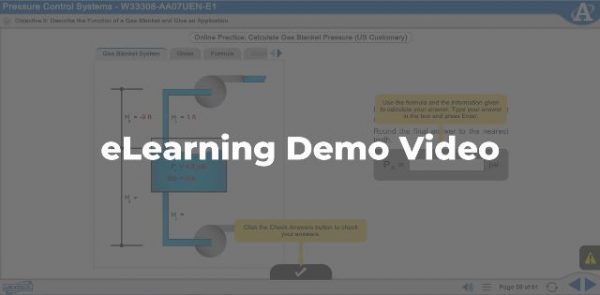Amatrol's basic AC/DC electrical eLearning course covers important topics, such as:
Basic Electrical Circuits
Learners begin with an introduction into basic electrical circuits, including fundamentals of electricity, electrical circuit components, manual input devices, and output devices. Individual lessons focus on the operation of a circuit tester, how to read an electrical schematic, and understanding the five types of electrical output devices. Learners will also practice skills, such as connecting and operating a power supply, connecting and operating a circuit using three types of manual switches, and connecting and operating an electrical circuit with a motor.
Electrical Measurements
Learners will study voltage measurement, series and parallel circuits, current measurement, and resistance measurement in the next module of this course. Individual lessons focus on how to use a voltmeter to measure voltage, characteristics of series and parallel circuits, how to use an ammeter, and how to use an ohmmeter. Learners will also practice skills, such as using a DMM to measure voltage drops in series and parallel circuits, using an analog voltmeter to measure the voltage of a ground point, and testing the continuity of wires using a DMM.
Circuit Analysis
Learners using Amatrol’s AC/DC Virtual eLearning course will be introduced to circuit analysis, including power series circuits, power in parallel circuits, and circuit protection devices. Individual lessons include the difference between Ohm’s Law and Kirchhoff’s Voltage Law, using Kirchhoff’s Current Law, and describing the operation of a fuse. Learners will also practice skills, such as calculating series resistance given each load’s resistance, operating a circuit using a fuse, and testing and resetting a circuiting breaker.
Inductance and Capacitance
Learners will study various aspects of inductance and capacitance, including electromagnetism, inductance, capacitance, characteristics of capacitance, and inductor and capacitor applications. Individual lessons focus on describing the function of four electromagnetic devices, calculating total series and parallel inductance and inductive reactance, operating a capacitor, using a capacitor in an AC circuit, and describing the function of a fluorescent light fixture. Learners will also practice skills, such as connecting and operating a relay in a circuit, calculating the total load on an AC circuit with inductors, discharging a capacitor, testing a capacitor with a DMM, measuring the voltage across a charged capacitor, and calculating the time to charge and discharge a capacitor.
Combination Circuits
In this module, learners will study combination circuits, including characteristics, lighting circuits, voltage dividers, and troubleshooting. Individual lessons include steps for solving a combination circuit, describing how switches are used, the operation of three types of voltage dividers, and the effect of a short circuit. Learners will also practice skills, including solving a combination circuit, connecting and operating a ceiling fan circuit, designing a voltage divider network, and locating a short circuit.
Transformers
In the final module, learners will be introduced to transformers. Individual lessons include the function and operation of a transformer, describing how to size a transformer, and describing the function of two basic categories of transformers. Learners will also practice skills, including calculating the secondary coil voltage of a transformer, sizing a transformer, and designing a control transformer circuit to provide a given output voltage.



























































